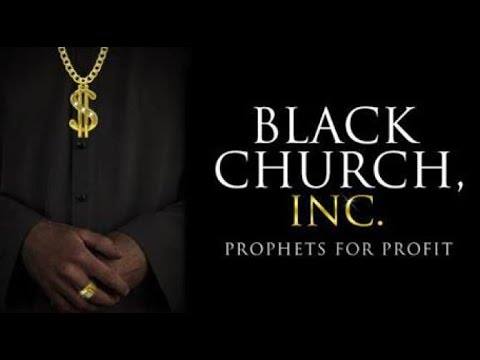Proverbs 3:9 doesn’t pertain to biblical tithing. Additionally, it doesn’t support the man-made doctrine requiring you to tithe 10% of your income to the church. While the verse talks about honoring the Lord with wealth, tithe advocates have taken it out of context. As we examine the Scripture, it becomes clear that the passage from Proverbs can’t be used to justify so-called tithing.

Table of Contents
- Watch the Video
- Verse Translations
- A Breakdown of Proverbs 3:9
- Honor the Lord
- Show God the Money
- Give the Lord the Best
- Recap
- Outsmart the False Teachers
Watch the Video
Verse Translations
9 Honour the Lord with thy substance, and with the firstfruits of all thine increase:
King James Version (KJV)
9 Honor the Lord with your wealth, with the firstfruits of all your crops;
New International Version (NIV)
9 Honor the Lord with your wealth and with the firstfruits of all your produce;
English Standard Version (ESV)
A Breakdown of Proverbs 3:9
The first step to addressing the question is to break down the verse. We must look at the keywords or main concepts mentioned to do this. These include honor, substance (wealth), first fruits, and increase based on the KJV Bible. We must know the meaning of each term so we can determine whether Proverbs 3:9 justifies paying 10% of your income to the church.
Honor the Lord
The word honor can’t be interpreted as tithing. The word honor has multiple meanings depending on how it’s used throughout the Bible. According to KJV Strong’s translation, definitions mean to be:
Heavy
Weighty
Grievous
Hard
Rich
Honorable
Glorious
Burdensome
Honored
Here’s the Merriam-Webster definition: to regard or treat someone with admiration and respect to regard or treat with honor b) to give special recognition; to confer honor.
It’s not evident which meaning is referred to in Proverbs 3:9. We can say that the word honor isn’t the same as the tithe. The tithe refers to a tenth, a tenth part, or 10%. Biblically speaking, it refers to a tenth of the crops and livestock from the ancient Holy Land of Israel.
Additionally, the verse doesn’t say how to honor the Lord with one’s substance. Regarding the tithe, the Lord has specific guidelines. He specifies what constituted the tithe, who had to pay tithes, who received tithes, and how tithes were to be used. So, the act of tithing comes with specific instructions. This isn’t the case when honoring the Lord with your substance.
If Proverbs 3:9 was about tithing, it would have said something to this effect:
“Tithe to the Lord with your substance.”
or
“Honor the Lord with a tithe of your substance.”
There’s no basis for using the word honor or tithe interchangeably. They are two different biblical concepts.
Now, let’s move on to the word substance.
Show God the Money
Like the word honor, the substance has multiple meanings. The KJV is translated into wealth, riches, or substances. Often this can refer to money, gold, silver, and other material possessions. This substance likely included money Israelites earned from their professions. But again, honoring the Lord with your substance is not the same as tithing.
The biblical tithe was not viewed in terms of wealth or riches. The tithing system was legalized under the Law of Moses. Its foundational purpose was to establish and maintain the Levitical priesthood.
Of course, this tithe was crops and livestock. It was not substance in the biblical sense of the word. As we see in the three translations mentioned earlier, the Bible illustrates that substance (wealth) is different from the first fruits (i.e., agricultural produce).
Give the Lord the Best
Proverbs 3:9 speaks of Hebrews honoring the Lord with their first fruits. Notice it didn’t say with their tithes. This is because first fruits and tithes are different (Nehemiah 12:44). One thing they have in common is that they both consist of crops.
First fruits refer to the first crops and cattle produced during the Harvest season (Nehemiah 10: 35-37). According to the Jewish Encyclopedia, the first fruits were the choicest products from the Holy Land of ancient Israel. They were given to the priests who presented them to the Lord for a variety of offerings, such as:
Burnt offering (Leviticus 1:3)
Meal offering (Ezekiel 46:15)
Drink offering (Leviticus 23:18)
First fruits were given as a form of thanksgiving. This was required under the Law of Moses. The increase refers to crops – not money.
Recap
The theme of Proverbs 3:9 focuses on Israel reaffirming its obedience to the Mosaic Law. It encourages them not to stray away from the Law. However, the verse isn’t promoting tithing. Ancient Israel is encouraged to honor the Lord with its substance (wealth, material possessions, gold, silver), but the verse doesn’t specify how this should be done. The first fruits were agricultural products and were given according to the Law of Moses.
Tithe advocates have misused this verse. They claim Christians must honor God by paying the church 10% of their income. As we see, this isn’t what this verse is about.
Can you honor the Lord with your substance (wealth, money, income, etc.) by giving a portion to the church (or other worthy cause)? Yes. However, Proverbs 3:9 isn’t a model for that giving since it doesn’t say how ancient Israel honored the Lord with its substance. As a result, many pro-tithers have misinterpreted the verse to support their doctrine mandating Christians to pay 10% of their income to the church.
Outsmart the False Teachers

📌 Discover the TRUTH about tithes, prosperity gospel preachers don’t want you to know. 👉 👉Click this link







